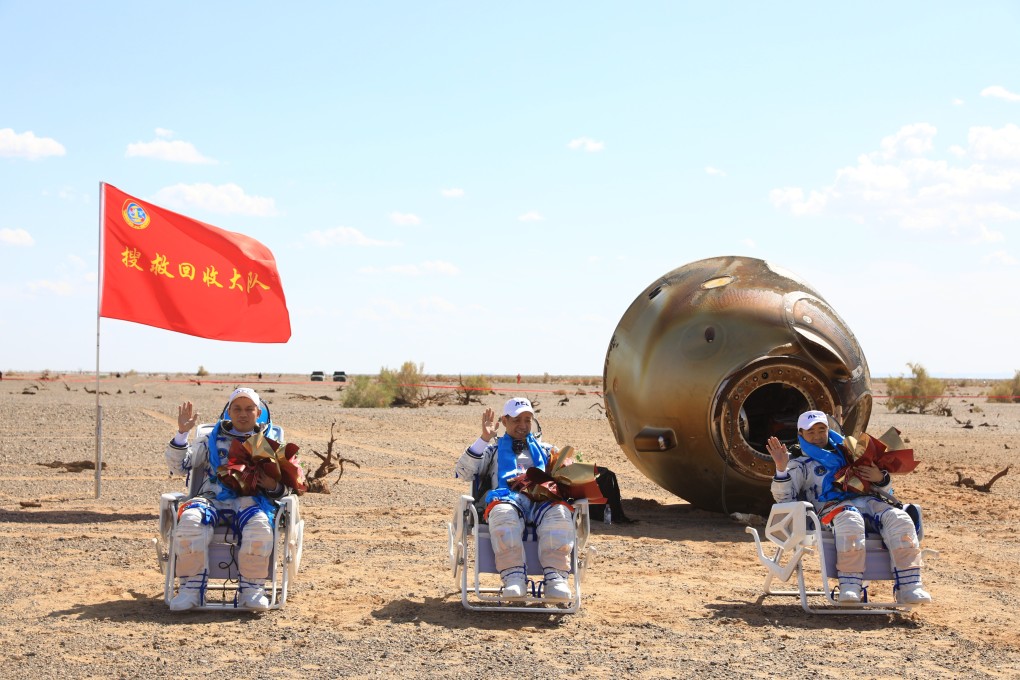Advertisement
China’s Tiangong astronauts return with vision of ‘new heights’ in space travel
- Mission commander tells his crew ‘real gold fears no fire’ moments before their successful re-entry after 90 days in space
- Their journey completes another milestone in China’s ambitious space programme
3-MIN READ3-MIN
30

China’s returning “space heroes” emerged from their capsule and waved to the waiting cameras on Friday, touching back down on Earth after 90 days on the country’s Tiangong space station.
At the landing site, Commander Nie Haisheng told state broadcaster CCTV that more Chinese astronauts would follow to “set new records and reach new heights” in space travel.
The three astronauts, who spent a record three months on the Tiangong, landed safely, completing a milestone journey in the country’s ambitious space programme.
Advertisement
“We all feel great,” Nie told the Beijing command centre before leaving the capsule.

01:21
Chinese astronauts return to Earth in re-entry capsule from Tiangong space station
Chinese astronauts return to Earth in re-entry capsule from Tiangong space station
Quoting a Chinese proverb, Nie joked with his fellow astronauts that “real gold fears no fire” before their capsule was engulfed in flames on re-entering the Earth’s atmosphere, an event broadcast live by CCTV.
Advertisement
Advertisement
Select Voice
Select Speed
1.00x